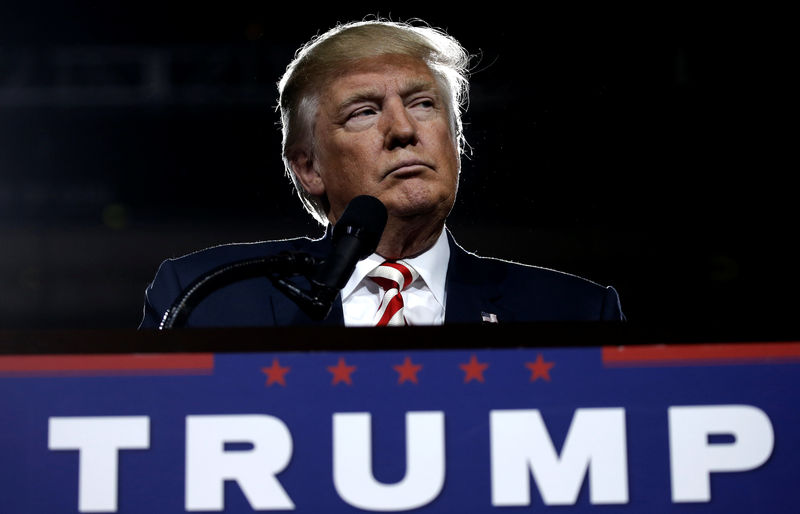(Bloomberg) -- The White House opted to take a less confrontational approach toward Chinese investments in the U.S. as it pushes Congress to strengthen an existing review process rather than invoke a little-used law reserved for economic emergencies.
President Donald Trump wants Congress to pass legislation to bolster the Committee on Foreign Investment in the U.S., or CFIUS, so it can prevent companies from violating intellectual-property rights of American companies, two administration officials said Wednesday, speaking to reporters on the condition of anonymity.
The administration decided not to employ the International Emergency Economic Powers Act of 1977 that would give the president broad authority to curb Chinese investments in the country.
The decision comes amid White House allegations that China engages in widespread theft of intellectual property. The inter-agency CFIUS panel, if bolstered by Congress, can address those concerns while maintaining an open investment climate, one of the administration officials said.
Trump’s choice shows that he is favoring a more measured strategy that requires coordination with Congress, rather than working solely through the executive branch. It’s also a win for proponents of conciliatory tone in negotiations with China such as Treasury Secretary Steven Mnuchin, who told reporters on Wednesday that moves to strengthen CFIUS aren’t intended to single out Beijing.
“This is not intended to target China,” Mnuchin said. “It’s fair to say that certain countries will get a heightened review; I don’t think we need a list of special countries.”
CFIUS legislation passed in the House would expand investigations by the panel to include minority investments in “critical technology” or “critical infrastructure” and joint ventures where technology companies contribute intellectual property. While CFIUS reviews are technically voluntary, the bill would require foreign investors that are at least 25 percent owned by foreign governments to go through CFIUS when they are acquiring at least a 25 percent stake in a U.S. business.
The Treasury Department has been closely involved in drafting the legislation, and Congress secured the administration’s full support before proposing it.
Mnuchin on Wednesday increased pressure on Congress to approve the Foreign Investment Risk Review Modernization Act, or FIRRMA, saying lawmakers must act fast.
“Should Congress fail to pass strong FIRRMA legislation that better protects the crown jewels of American technology and intellectual property from transfers and acquisitions that threaten our national security -- and future economic prosperity -- I will direct my Administration to deploy new tools, developed under existing authorities, that will do so globally,” Trump said in a statement.
Only five takeovers of American firms have been blocked by U.S. presidents on national security grounds since 1990. Trump has used the tool more frequently than past administrations.
“This is a positive development. It avoids use of emergency powers, which would have created a new ad hoc and highly uncertain framework,” said Robert Kahn, a professor at American University who previously worked at the World Bank and International Monetary Fund. “The new congressional legislation strengthening CFIUS could still have a chilling effect on Chinese investment depending on how it is implemented.”
(Updates with comments from Mnuchin in sixth paragraph.)
